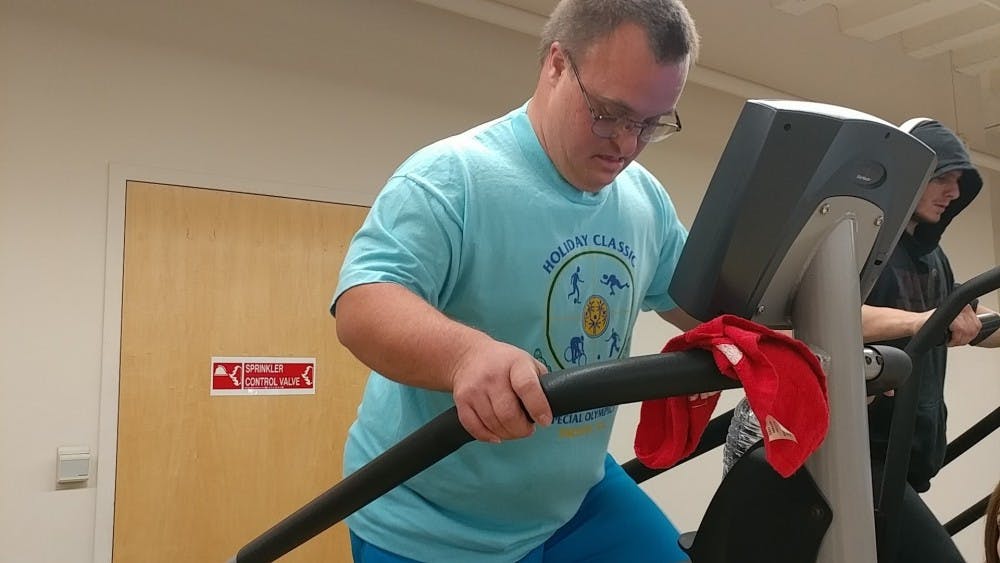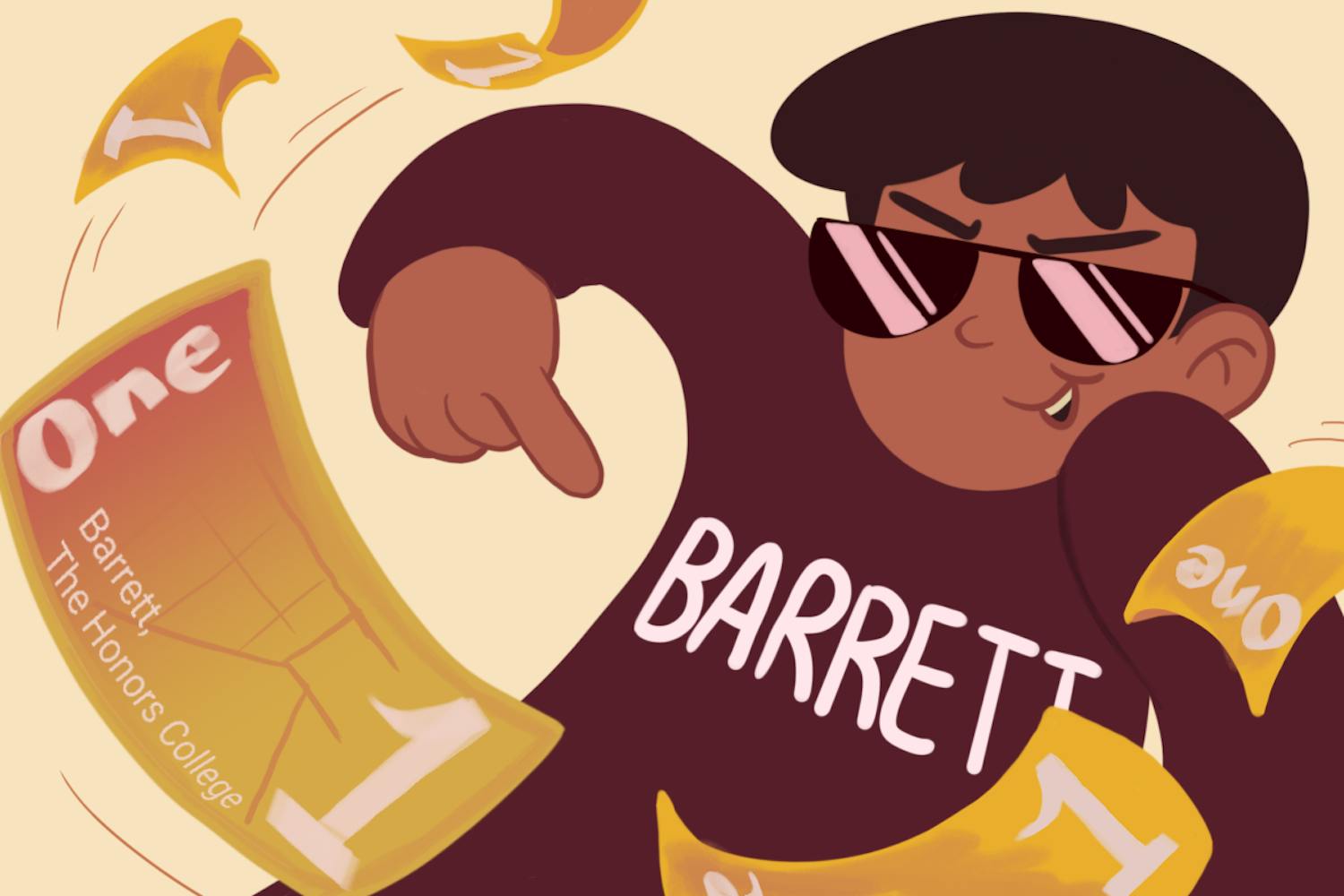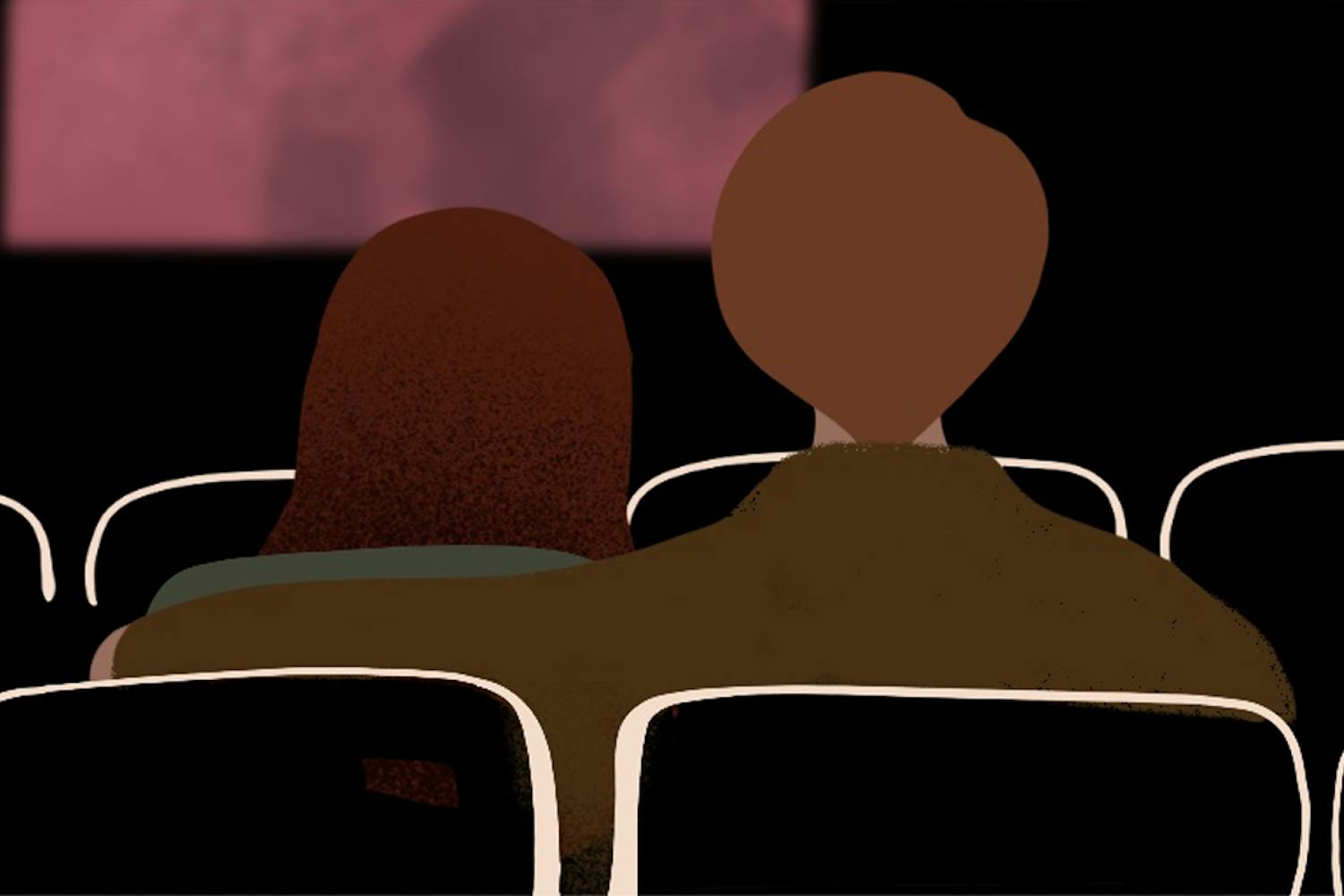Adults with Down syndrome now have a healthy outlet for exercise at the Downtown Phoenix campus.
The Exercise Program for Adults with Down Syndrome (ExDS) promotes physical activity and helps participants achieve their exercise goals. The program also helps "spread awareness, tolerance and inclusion,” according to its website.
Participants go to the Downtown Phoenix SDFC, which is conjoined with the YMCA, to work with ASU students twice a week.
The program has 16 participants, all adults with Down syndrome, and 13 ASU students working alongside them.
Simon Holzapfel, a clinical assistant professor in the School of Nutrition and Health Promotion, started the program.
Holzapfel began his planning in the spring after the Down Syndrome Network of Arizona reached out to him, and the exercise program kicked off on Aug. 28, 2017.
“A lot of folks with Down syndrome are very sedentary,” he said. “They don’t have a lot of physical activity opportunities, at least not physical activities that they enjoy and are appropriate for them.”
Holzapfel said many adults with Down syndrome live in assisted living or group homes where they don’t have many opportunities for exercise.
He also said the program provides social opportunities for the participants.
“I think about this program first and foremost as a community program, to engage ASU with a part of the community that is underserved,” he said.
Holzapfel said the program is also a class, so students can get credits for participating.
“I think it’s very good for them to get this experience with a special population and to hopefully shape them into inclusive fitness professionals,” he said.
The program is also Holzapfel’s research project, so he tracks the progress of all the participants and the effectiveness of the program.
Claire Sabatier, one of the participants with Down syndrome, said she enjoys Zumba and the treadmill as part of her workout. Her instructor is Nicole Libson, a senior exercise and wellness major.
Libson has been Claire’s trainer since the beginning of September. They mostly work on balance and flexibility. Sabatier said she likes Lisbon more than she likes the exercising.
“She’s my favorite,” Sabatier said.
Libson said she likes having the opportunity to work with those with Down syndrome.
“We’re changing lives,” Libson said.
Ann Shikles, a junior studying biomedical sciences, is pursuing a career in physical therapy, so she had Simon Holzapfel as her professor. When she heard about the exercise program, she asked him to be a part of it.
Shikles said she tries to make exercising more enjoyable for participants. One of her participants has limited hip flexors and mobility, so she wanted to work on aerobic fitness.
“I named a tape measure, I named him Fred, and I stuck him on an exercise bench, and then we had to step over Fred, and we couldn’t step on him because Fred is our friend, and if we stepped on him, we had to do more steps,” she said.
Shikles said it is important that the participants don’t feel like they are being tested because sometimes they don’t have the best self-confidence.
“I think it’s important to give the adults with Down syndrome the opportunity to go and interact in a place, walk into a gym, and feel comfortable and confident,” she said. “They can embrace their differences instead of not feeling confident and hiding behind their differences.”
Shikles said the program benefits ASU students going into the healthcare field because it helps to get experience working with different behaviors and personalities.
“Every participant that comes in is their own person in their own way,” she said. “They can each have a different severity of Down syndrome, so they ways they react to the exercises or even engaging and talking to you are completely different.”
Shikles said it can be a challenge receiving feedback because some of the participants aren’t very vocal, and if they have a bad day, it overwhelms them.
“I think it’s a learning experience for them as well,” she said. “They can figure out how to push through the obstacles of the day and focus on themselves a little bit."
Reach the reporter at anbuechl@asu.edu or follow @alexa_buechler on Twitter.
Like The State Press on Facebook and follow @statepress on Twitter.




